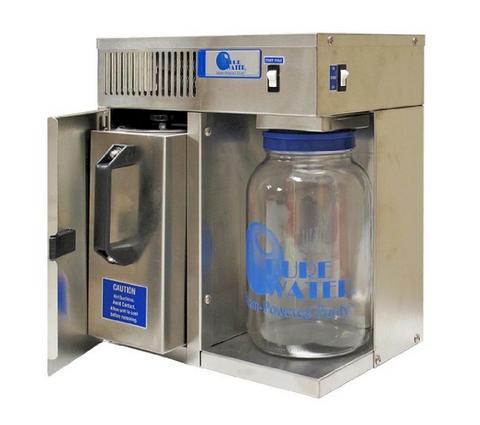
Janet Woodcock, MD is current FDA Director of the Center for Drug Evaluation and Research. Maybe she can advise under her watch — during an opioid epidemic in the U.S., why she does not question the dangers of Sufentanil (Dsuvia) being released on the American people.
Marianne Skolek Perez, Investigative Reporter
(MYRTLE BEACH) In early 2005, I exposed Purdue Pharma, maker of OxyContin, for marketing a dangerous opioid called Palladone. In July 2005, Palladone was removed from the market following an FDA request because of “safety concerns” An FDA news release stated that “serious and potentially fatal adverse reactions could occur when Palladone (hydromorphone hydrochloride) extended release capsules were taken together with alcohol.” (See news release below).
The FDA recently approved yet another dangerous opioid. This one made by AcelRx Pharmaceuticals, Inc. called Sufentanil or Dsuvia. The opioid is to be administered sublingually (faster absorption) and is approximately 5 to 10 times more potent than its parent drug, Fentanyl and 500 times as potent as morphine. It will be administered to pregnant women in labor as well as wounded military in the battlefield with the condition that physicians “closely” monitor patients for respiratory failure. It will be used in the treatment of ambiguous chronic pain. Sufentanil or Dsuvia should never be administered to any human.
This dangerous opioid is similar to Palladone in that it should never be taken with alcohol or products that have alcohol. Unsafe and deadly effects may happen — right off AcelRx Pharmaceuticals description of Sufentanil or Dsuvia.
I will be working fiercely, as I did with Palladone to have the FDA withdraw their approval of Sufentanil or Dsuvia immediately before the death toll to yet another dangerous opioid ravages our country further destroying tens of thousands of lives during an opioid epidemic. Why would the FDA approve an opioid with such dangerous and life threatening risks? Ask Janet Woodcock.
Janet Woodcock, MD is current FDA Director of the Center for Drug Evaluation and Research. Maybe she can advise under her watch — during an opioid epidemic in the U.S., why she does not question the dangers of Sufentanil (Dsuvia) being released on the American people — yet an acting FDA Director of the Center for Drug Evaluation and Research in 2005 recognized the dangers of Palladone and had it pulled.
Next week I will be questioning the FDA on using Lynn R. Webster, MD as an “expert” in the approval of Sufentanil (Dsuvia). Just a word to the FDA — I did not go away when it came to Palladone being taken off the market and I am certainly not going away when they arbitrarily expose the American people to an opioid that should never be prescribed to any human being and is not only dangerous, but is life-threatening.
Below is the FDA News Release dated July 13, 2005 regarding the recall of Palladone:
FDA NEWS RELEASE
FOR IMMEDIATE RELEASE
P05-42
July 13, 2005 |
Media Inquiries:
Suzanne Treviño, 301-827-6242
Consumer Inquiries:
888-INFO-FDA
|
FDA Asks Purdue Pharma to Withdraw Palladone for Safety Reasons
After acquiring new information that serious and potentially fatal adverse reactions can occur when Palladone (hydromorphone hydrochloride) extended release capsules are taken together with alcohol, the U.S. Food and Drug Administration has asked Purdue Pharma L.P., the makers of the drug, to withdraw it from the market.
Palladone is a once-a-day pain management drug containing a very potent narcotic. New data gathered from a company-sponsored study testing the potential effects of alcohol use shows that when Palladone is taken with alcohol the extended release mechanism is harmed which can lead to dose-dumping. Dose-dumping is a term that describes the rapid release of the active ingredient from an extended release product into the blood stream. The consequences of dose dumping at the lowest marketed dose (12 mg.) of Palladone could lead to serious, or even fatal, adverse events in some patients and the risk is even greater for the higher strengths of the product. As a result of this potential serious safety risk, the FDA has asked Purdue Pharma, and they have agreed, to suspend all sales and marketing of Palladone in the U.S. pending further discussions with the agency.
“All powerful pain management drugs have serious risks if used incorrectly, but the current formulation of Palladone presents an unacceptably high level of patient risk” said Dr. Steven Galson, FDA Acting Director of the Center for Drug Evaluation and Research. “Although we have not received reports of serious problems, this product has so far been used in a relatively small number of patients. We are concerned that as more patients take this drug, safety problems will arise since even having one alcoholic drink could have fatal implications.”
The current labeling for Palladone, approved in September, 2004, already includes the standard opioid warning against the use of alcohol and Palladone. However, the FDA does not believe that the risk of serious, and potentially fatal, adverse events can be effectively managed by label warnings alone and a risk management plan.
|
|
|
Links to previous articles written by me exposing Janet Woodcock, MD for her part in contributing to the opioid epidemic:
http://www.globalnewscentre.com/is-janet-woodcock-md-director-of-fda-guilty-of-medical-malpractice/#sthash.imNhfSiU.dpbs
http://www.salem-news.com/articles/september212015/oxycontin-purdue-pharma-children-ms.php
Marianne Skolek Perez
Consultant to attorneys on opioid lawsuits filed throughout the country
Investigative Reporter covering the opioid epidemic writing for
Global News Centre, Salem-News.com, Sons of Liberty Media, The Washington Standard and Freedom Outpost
908-285-1232 - cell
 Global News Centre’s Marianne Skolek, is an Investigative Reporter who focuses on the Prescription Opioid/Heroin Epidemic in the U.S. and Canada. In particular, Marianne has covered the criminal marketing of OxyContin going back to 1999 and continuing to the present.
Global News Centre’s Marianne Skolek, is an Investigative Reporter who focuses on the Prescription Opioid/Heroin Epidemic in the U.S. and Canada. In particular, Marianne has covered the criminal marketing of OxyContin going back to 1999 and continuing to the present.
In 2002, Marianne lost her daughter, Jill to prescribed OxyContin which her physician referred to as “mobility in a bottle.” It was, in fact, death in a bottle. After doing extensive research on the maker of OxyContin, Purdue Pharma, Marianne began working with the Department of Justice in Virginia in their criminal investigation into Purdue Pharma and in July 2007 was asked by the U.S. Attorney John Brownlee prosecuting the case to testify against the three CEO’s of Purdue Pharma, Michael Friedman, Paul Goldenheim, MD and Howard Udell, Chief Counsel. The CEO’s pleaded guilty to misleading the medical profession about the dangers of OxyContin. Marianne also testified against Purdue Pharma at a Judiciary Hearing of the U.S. Senate in July 2007.
In addition, a dangerous and highly addictive opioid named Zohydro has been approved by the FDA against their Advisory Committee’s advice and Marianne continues to alert Attorneys General, Senators and Congressmen as to the FDA’s irresponsibility in the out of control prescription opioid/heroin epidemic killing and addicting in the tens of thousands each year. Zohydro has been referred to as “heroin in a capsule” and its lowest dosage (10mg) contains twice as much hydrocodone as found in a Vicodin pill. The highest single dose of Zohydro contains as much hydrocodone as 5 to 10 tablets of Vicodin or Lortab. Zohydro mixed with alcohol can be fatal and has no abuse deterrent built in which will make it easy to crush and deliver a fatal dose of the opioid.
Currently Marianne has been instrumental in calling for the termination of Margaret Hamburg, MD, Commissioner of the FDA as well as Bob A. Rappaport, MD and Douglas Throckmorton, MD for their lack of commitment to safeguarding the American public against the prescription opioid/heroin epidemic. Marianne’s research, writing and contact with government agencies and attorneys has also exposed the heavily funded pain foundations set up by the pharmaceutical industry and their paid physician spokespersons who convinced the medical boards in 50 states and Canada that dangerous opioids such as OxyContin were less likely to be addictive. These physicians — in particular Scott Fishman, MD, J. David Haddox, DDS, MD, Perry Fine, MD, Lynn R. Webster, MD, Russell Portenoy, MD also downplayed the risks of addictive opioids in books as authors. These books are still available for sale and promoted to the medical profession.
Here are links to Marianne’s involvement in exposing the national conspiracy of the prescription opioid/heroin epidemic, the FDA, the pharmaceutical industry, their pain foundations and paid physician spokespersons.
http://www.salem-news.com/by_author.php?reporter=Marianne%20Skolek
http://www.youtube.com/watch?v=tmPG1VjD61U&list=UUWoHUEr4ZAbQOfIqtOArjgg&index=6&feature=plcp
https://www.facebook.com/photo.php?v=855537227796352&set=vb.658186307531446&type=2&theater
 Global News Centre’s Marianne Skolek, is an Investigative Reporter who focuses on the Prescription Opioid/Heroin Epidemic in the U.S. and Canada. In particular, Marianne has covered the criminal marketing of OxyContin going back to 1999 and continuing to the present.
Global News Centre’s Marianne Skolek, is an Investigative Reporter who focuses on the Prescription Opioid/Heroin Epidemic in the U.S. and Canada. In particular, Marianne has covered the criminal marketing of OxyContin going back to 1999 and continuing to the present. 




















